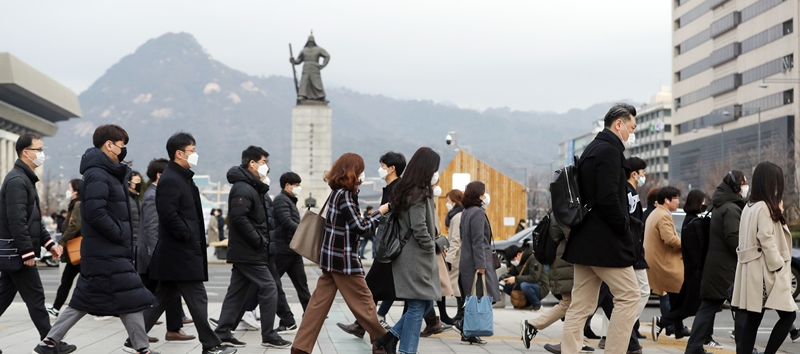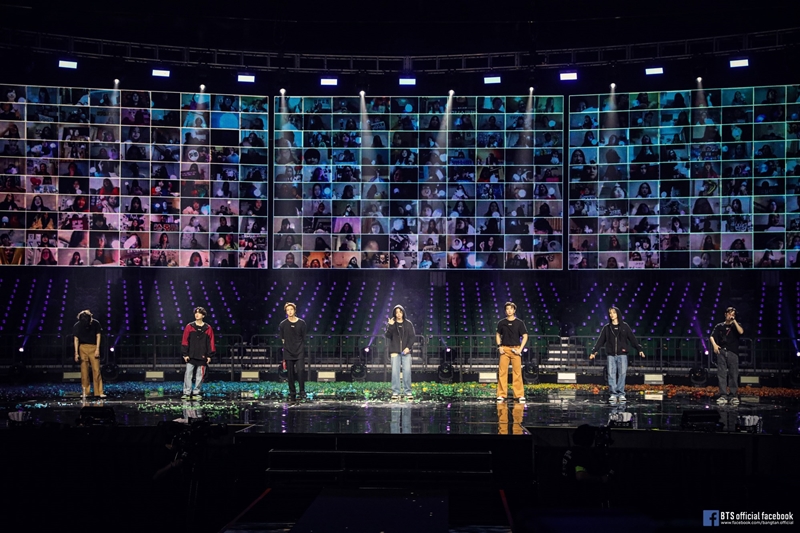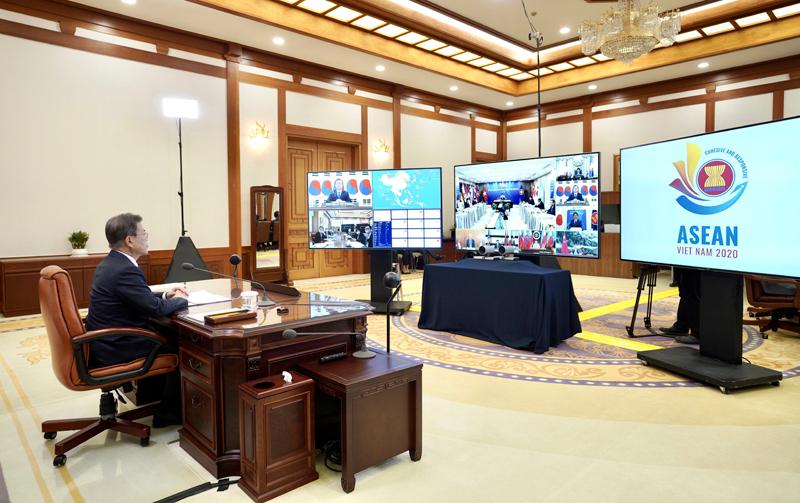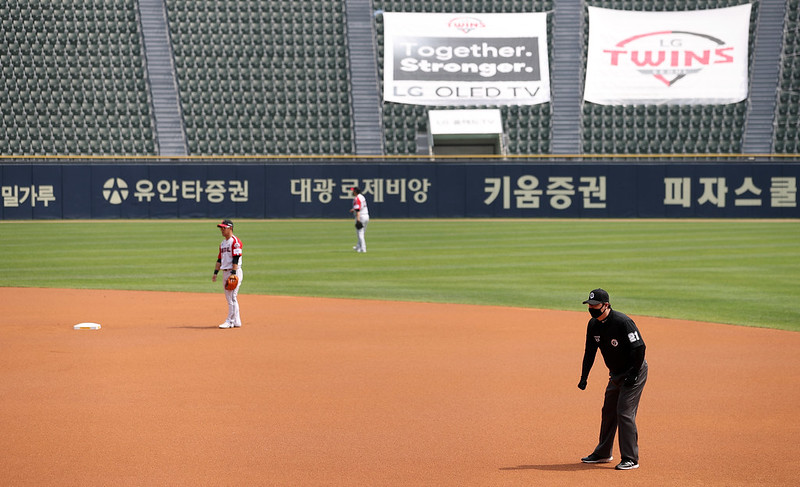By Kim Minji and Lee Jihae
Masks
"Please wear a mask."
This request is heard when a public transportation card is read by the turnstile at a Seoul subway station. This came as wearing a mask in public places became mandatory due to COVID-19, with people feeling weird when not wearing one. Since October, the government has required mask wearing while taking public transportation or at stores, offices and schools. Failure to do so or not fully covering both the nose and mouth while wearing a mask can incur a fine of KRW 100,000.
The Ministry of Food and Drug Safety said the country produced an estimated 6.4 billion masks from February to Dec. 20. A mask shortage through April early in the outbreak caused long lines of people at pharmacies and hypermarkets waiting to buy masks. The number of domestic mask manufacturers jumped nearly eight-fold from 130 in February to 1,056 in the third week of December.

People on Feb. 24 wear masks while crossing the street near Seoul's Gwanghwamun Station to prevent the spread of COVID-19. (Yonhap News)
Noncontact or 'untact'
The Korean neologism "untact" is the antonym of "contact" and refers to the minimization of contact with others. The lingering pandemic caused Korea to become a noncontact society.
Activities usually done with the eyes and ears such as culture, arts and religious activities became noncontact. Certain museums and art galleries began holding online exhibitions such as those of virtual reality and showing curator videos for those unable to visit. The pop music industry held virtual performances and musicals through online platforms, with K-pop stars like BTS communicating with fans through streaming services such as YouTube.
The French daily Le Monde on Sept. 23 ran the article titled "With the coronavirus, comes a world without contact," saying working, eating and shopping all day in Seoul without physical contact with anyone were possible. The ensuing noncontact society in Korea is not the type appearing in science fiction but has further advanced due to COVID-19, it added.

BTS on Oct. 10 performs at its online concert "BTS Map of the Soul On:E" in Seoul. The livestreamed concert applied state-of-the-art technology and was viewed by about 993,000 fans around the world in real time. (BTS's official Facebook page)
Telecommuting
As COVID-19 lingered to cause a shift toward a noncontact lifestyle, workplaces launched telecommuting and schools adopted home learning. Meetings were held online and education through cyberspace grew more common amid the pandemic.
The job search site Saramin on Dec. 17 announced the results of its survey of 244 corporations on the biggest changes brought on by COVID-19, with "adoption and expansion of telecommuting" comprising 75.6% of the responses. Companies started having their staff work, hold meetings and seminars, and even hire online.
With people spending more time at home, the online food market saw its business skyrocket. Statistics Korea on Dec. 28 said transactions of food and beverages, produce, livestock and marine products via online and mobile shopping from January to October this year reached KRW 34.6 trillion, up 60.3% from the same period last year.

President Moon Jae-in on April 14 speaks at the ASEAN (Association of Southeast Asian Nations) Plus Three Summit for responding to the pandemic. (Yonhap News)
Social distancing
This term has had the biggest impact on daily life in Korea in the COVID-19 era. The government adjusted the social distancing level depending on the pandemic's spread, deciding whether students could go to school, if restaurants, cafes and hypermarkets could open, and the number of people who could attend religious activities or weddings.
Social distancing started as a campaign to prevent COVID-19's spread but as the pandemic dragged on, the Central Disaster and Safety Countermeasure Headquarters in June categorized social distancing into three levels depending on the severity of the spread and quarantine measures. In November, levels 1.5 and 2.5 were added to form a five-tier social distancing system.
As of Dec. 29, the Seoul metropolitan region was at Level 2.5 and the rest of the country 2.

Korea's pro baseball season began on May 5 without spectators at stadiums. This is a photo from a May 17 game between the LG Twins and the Kiwoom Heroes showing no fans in the bleachers. (Jeon Han)
Korea showed a preemptive response to and adaptability amid the pandemic in 2020. Here's hoping for keywords denoting positive growth and change in 2021.
kimmj7725@korea.kr